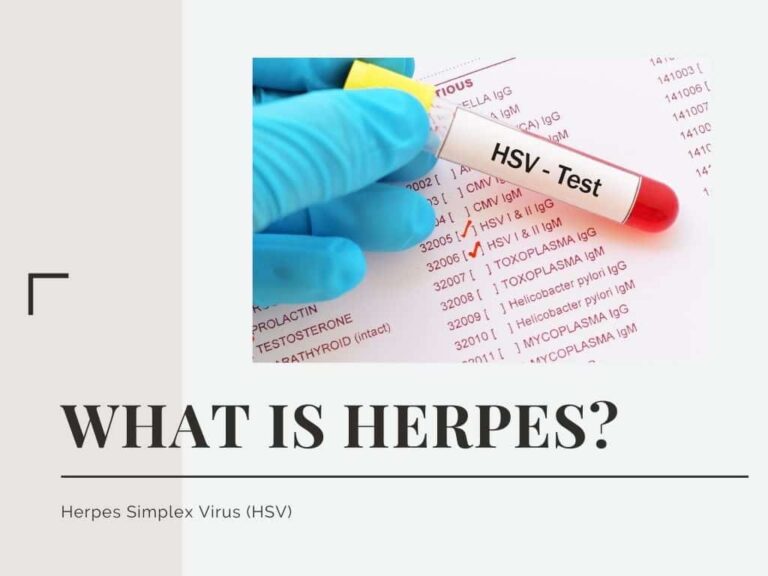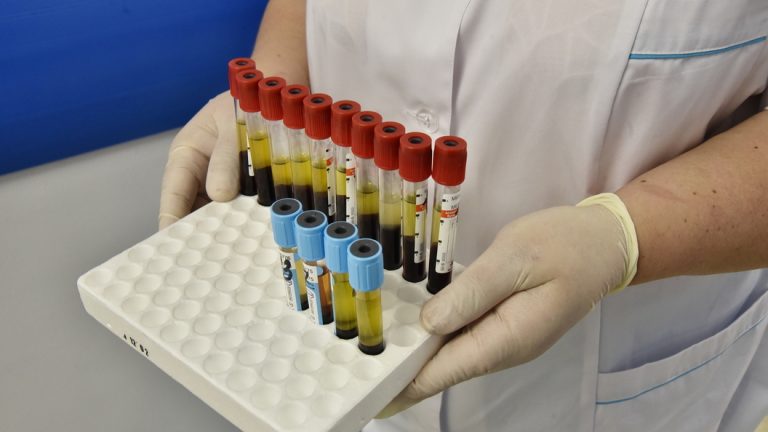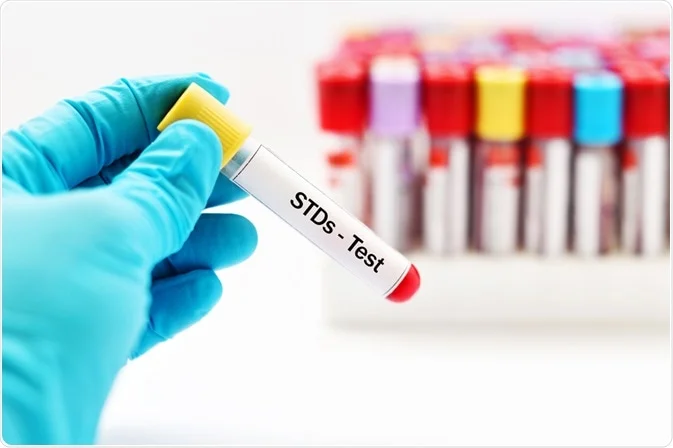Chlamydia in Men: The Sneaky Symptoms You Can’t Afford to Miss
Today, we’re shining a spotlight on a topic that’s often overshadowed but critically important: chlamydia in men. Here at Hope Across The Globe, we’re committed to empowering you with the knowledge to safeguard your sexual health. Join us as we uncover the subtle yet significant symptoms of chlamydia in men, guiding you on a path toward greater awareness and proactive health management.
Decoding Chlamydia’s Impact
Chlamydia, caused by the bacterium Chlamydia trachomatis, is a stealthy intruder that can silently invade your body through sexual contact. While it may not always announce its presence with apparent symptoms, untreated chlamydia can lead to serious health complications. Let’s delve into the nuances of chlamydia symptoms in men, arming you with the information you need to stay ahead of this common but often overlooked infection.
Sneaky Symptoms of Chlamydia
Chlamydia is often referred to as a “silent” infection because it can lurk in the body without causing noticeable symptoms. However, when symptoms do occur, they can vary widely and may include:
1. Urethral Symptoms
Pain or Burning Sensation: One of the most common symptoms of chlamydia in men is a burning sensation or pain during urination. This discomfort may indicate inflammation or infection of the urethra, the tube that carries urine from the bladder out of the body.
Abnormal Discharge: Another telltale sign of chlamydia is abnormal discharge from the penis. This discharge may be transparent or cloudy and can occur spontaneously or after urination. It’s essential not to ignore any unusual discharge, as it could indicate an underlying infection.
2. Rectal Symptoms
Rectal Pain or Discomfort: In men who engage in receptive anal intercourse, chlamydia can infect the rectum, leading to symptoms such as rectal pain or discomfort. This may be accompanied by discharge, bleeding, or itching in the anal area. If you experience any rectal symptoms, seeking medical attention promptly is essential.
3. Throat Symptoms
Sore Throat: While less common, chlamydia can also affect the throat in men who engage in oral sex with an infected partner. Symptoms may include a sore throat, discomfort, or difficulty swallowing. If you experience any throat symptoms after oral sex, it’s essential to consider the possibility of chlamydia and seek testing if needed.
Understanding the Implications of Untreated Chlamydia
It’s crucial to recognize that untreated chlamydia can have significant health implications for men. While the infection may start with mild or no symptoms, it can lead to more severe conditions if left unaddressed:
- Epididymitis: In men, one potential complication of untreated chlamydia is epididymitis, which is inflammation of the epididymis, the tube that carries sperm from the testicles. Symptoms may include testicular pain, swelling, and discomfort in the groin area.
- Prostatitis: Another potential complication is prostatitis, which is inflammation of the prostate gland. This condition can lead to painful urination, pelvic pain, and flu-like symptoms.
- Infertility: Chronic untreated chlamydia can also contribute to infertility in men. The infection can cause damage to the reproductive system, affecting sperm production and transport.
Risk Factors for Chlamydia Infection in Men
Understanding the risk factors associated with chlamydia can help you make informed decisions regarding your sexual health:
- Multiple Sexual Partners: Engaging in sexual activities with multiple partners increases your risk of chlamydia exposure. The more partners you have, the higher the likelihood of encountering an infected individual.
- Unprotected Sex: Not using condoms or other barrier methods during sexual intercourse significantly increases the risk of contracting chlamydia. Condoms are a vital tool in reducing the transmission of STIs.
- History of STIs: A personal history of STIs can elevate your risk of reinfection or acquiring new infections, including chlamydia.
- Age: Young adults and teenagers are at a higher risk of chlamydia infection, primarily due to engaging in risky sexual behaviors and a lack of awareness regarding safe practices.
The Importance of Regular Testing
Given the often-silent nature of chlamydia, regular testing is crucial for sexually active individuals. Here’s why:
- Early Detection: Regular testing can lead to early detection of chlamydia, allowing for timely treatment and reducing the risk of complications.
- Peace of Mind: Knowing your STI status can provide peace of mind, enabling you to engage in sexual activities with confidence and responsibility.
- Protecting Your Partners: Getting tested and treated if necessary helps protect your sexual partners from potential infection, fostering a responsible approach to sexual health.
The Psychological Impact of Chlamydia
Beyond physical health, it’s essential to acknowledge the psychological and emotional aspects of dealing with an STI like chlamydia. Diagnosis can lead to feelings of shame, anxiety, or confusion. Here are some key points to consider:
- Emotional Reactions: Receiving a positive diagnosis can trigger a range of emotions, including fear of judgment or stigmatization. It’s important to know that you are not alone and that many people experience similar challenges.
- Support Systems: Leaning on support from friends, family, or support groups can be beneficial. Open conversations about sexual health can help reduce feelings of isolation and promote understanding.
- Mental Health Resources: If you find that the emotional impact of an STI diagnosis is overwhelming, consider seeking counseling or therapy. Mental health professionals can offer valuable support in processing your feelings and developing coping strategies.
Empowering Yourself with Knowledge
Knowledge is a powerful tool in combating the stigma surrounding STIs. By educating yourself about chlamydia, its symptoms, transmission, and prevention, you empower yourself and contribute to a broader culture of awareness and acceptance.
- Advocating for Sexual Health: Sharing accurate information about chlamydia and other STIs with peers helps dismantle stigma. Consider discussing these topics in educational settings, community programs, or social groups.
- Engaging in Open Dialogues: Engage in open dialogues about sexual health with your partners. Discussing testing, protection, and consent fosters a healthy and informed sexual environment.
Seeking Help at our Jacksonville STD Clinic
If you’re experiencing any symptoms of chlamydia or have concerns about your sexual health, our Jacksonville STD Clinic is here to help. Our team of experienced healthcare professionals specializes in the diagnosis and treatment of STIs, including chlamydia. Whether you need testing, treatment, or advice, we’re here to provide confidential and compassionate care.
FAQs About Chlamydia
Q: Can chlamydia go away on its own?
While some people may clear chlamydia without treatment, the infection can persist and cause complications if left untreated. It’s essential to get tested and seek treatment if you suspect you may have chlamydia.
Q: How is chlamydia diagnosed?
Chlamydia is typically diagnosed through urine testing or swab samples from the urethra, rectum, or throat. Testing is quick, easy, and painless; results are usually available within a few days.
Q: Is chlamydia treatable?
Yes, chlamydia is easily treatable with antibiotics. Treatment typically involves a short course of antibiotics, which can effectively clear the infection in most cases. It’s essential to complete the entire course of antibiotics as your healthcare provider prescribes.
Q: How can I prevent chlamydia?
The best way to prevent chlamydia is to practice safe sex, including using condoms correctly and consistently during vaginal, anal, and oral sex. Limiting your number of sexual partners and getting tested regularly for STIs can also help reduce your risk.
Conclusion
Chlamydia may be sneaky, but with awareness and proactive steps, you can protect yourself and your sexual health. If you have any concerns or experience symptoms of chlamydia, don’t hesitate to reach out to our Jacksonville STD Clinic for support and guidance. Remember, your health is worth prioritizing, so stay informed and take charge of your well-being.
Related Tag: Jacksonville STD Clinic






